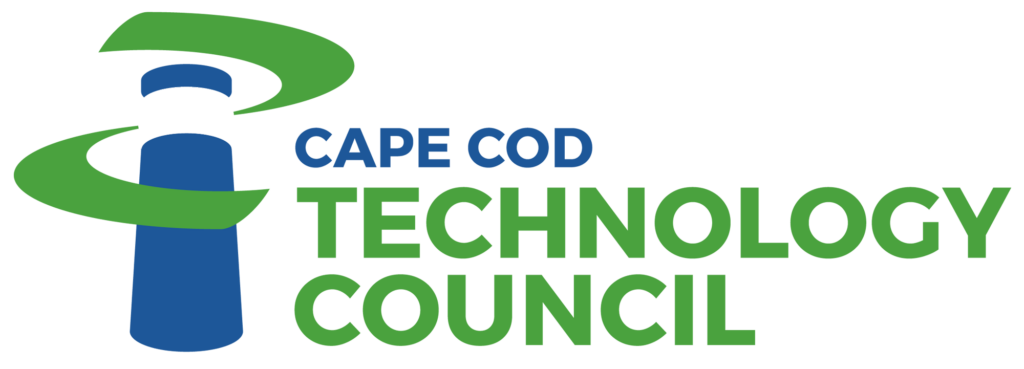Our speaker at December’s First Friday was Tobias Stapleton, Assistant Vice Chancellor and Director of the UMass Dartmouth Center for Innovation and Entrepreneurship – a business incubator for technology-driven companies.
Along with Naval Undersea Warfare Center, and Woods Hole Oceanographic Institution, UMass Dartmouth is part of a golden triangle of marine technology and expertise in southern New England. Tobias shared with us how UMass Dartmouth is supporting its part of the triangle with marine technology start-ups.
Following a catastrophic fire in 1987 at the Kerr Mill complex on Martine Street in Dartmouth, city leaders began looking for ways to redevelop the site, and eventually went into an agreement with UMass Dartmouth to build a research and development center. In 2015 it became the Center for Innovation and Entrepreneurship (CIE), which is now home to an anchor tenant, over 20 tech venture companies, laboratories for faculty and industry collaboration, and a conference center.
CIE began with state allocation and funding from UMass Dartmouth, but now is completely self-funded with income generated through tenants, patent development, and programming at the conference center – including the Maritime Innovations Conference. They provide the physical space for companies to start up, with laboratories for them to build their product (machine shop and prototype development), and expertise (lab managers, scientists, etc.).
How did they become self-funded? “Through lots of little things,” Tobias said. “Like reaching out to specific organizations and introducing them to what is available.” They had to think creatively about the way they brought revenue in – including patent activity, and productizing the things they’re doing. “It’s more hand-to-hand combat than anything else,” he said. CIE has hosted three startup weekends, six student-run startups, and the Southern New England Entrepreneurs Forum. They have three patents currently in process.
Marine technology
CIE is starting to get recognition as the place where marine companies can get started, and have seen most marine technology activity in their prototyping and machine shop. Tobias said they’ve had six marine tech companies graduate from the program, five of which have stayed in Massachusetts. Combined, these companies generate 15 million in sales revenue and employ over 160 people. Six more marine tech companies are currently incubating.
Upgrades are on the horizon at CIE. They are building a new environmental chemistry lab; upgrading current capabilities in the prototype lab with a 3D scanner and multi-material 3D printers; and updating A/V systems in the conference center (which date back to the building of the center).
In answer to a question about employment, Tobias explained that all companies in the incubator hire students. Half of Ocean Server’s employees started as interns, for example. He is looking to bring students at all levels – vocational, community college – into the center.
Another aspect to solving the job dilemma is preventing the “brain drain.” Students go to college somewhere else, move away to work, and then telecommute when they come back to help with parents and raise kids. Students don’t know there’s opportunity here, so they set their sights on Silicon Valley or major cities. “We need to get the story out as much as we can,” he said about job opportunities in Massachusetts. The one comment he hears the most is “how come I never heard about this?”
“We have companies you wouldn’t think of,” he said, “all taking root in Fall River.”
